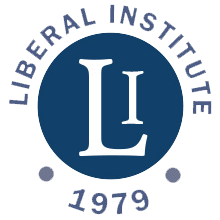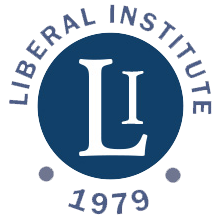
It was 1993. With some friends I organised in my city, Brescia, Italy, a conference and invited Reynald Secher, a Breton historian who is the most important scholar of the “Vandead genocide”. This is the Jacobin violent repression in the French North-West decided by Republican government after the war between Paris and the Catholic monarchists, who refused compulsory conscription.
Before the conference, Secher and I spent a whole day together. We talked about what happened two centuries ago in Vandée (where a third of the people were killed after a specific political decision of the Convention). Later we discussed individual rights, classical liberalism, economic planning, the “excessive” power of the political class, and Hayek and his critique of the constructivism. On that occasion, I discovered that Secher was indeed a classical liberal, and that he thought that the rebels insurrecting against Robespierre were cancelled by French history by the first totalitarian regime of the past. For this reason and many others, he regarded inadequate the representation identifying modernity and liberalism, State and individual liberty.
During the last ten years I recalled that conversation on many occasions, and every time I noted the absurdity of the Marxian philosophy of history. The idea that free-market capitalism would be more modern than feudalism and less modern than socialism is really trivial. This notion can be somewhat obvious from a chronological point of view (if we consider market capitalism to coincide with the Industrial Revolution). On the other hand, it gives us an interpretation of the Western history which is marked by a misconstruction of what really happened. And the first mistake can be the overlooking of the Middle Ages as the cradle of capitalist society.
It is obvious that many misrepresentations come directly from the band of terms usually associated to classical liberalism and free-market doctrine (it is enough to recall that during the 19th century the adjective “liberal” has been used for the nationalist movements and also for some leanings of the rationalistic theology, specially in the Protestant world). On the contrary, here I will talk about classical liberalism, focusing my attention on the philosophical tradition that defends the individual from collectivism, civil society from government, law from the arbitrary will of the ruling class. This is the tradition of Locke and Jefferson, Constant and Bastiat, Lord Acton and Spencer, Mises and Rothbard. For those who belong to such a tradition, Liberalism is the opposition to the modern process of endless growth of power. In this sense, it is the effort to resist a trend marking the last five centuries of western history and having its climax during the totalitarian era. For this reason, Liberalism is the “Resistance” (the Counter-revolution, if you will) of civil society against the glorious march of the sovereign authority, which has progressively annihilated liberty for individuals as well as for their voluntary and “natural” communities.
In my opinion, classical liberalism has to be considered as a “reactionary” (in the very literal sense) political theory. It is reactionary in as much as it organises, at least theoretically, the liberal opposition of proprietary individuals, local cultures, religious traditions, old institutions and other “life-worlds” (Lebenswelten) that the French Republican army led by the infamous general Westermann tried to exterminate in Vendée. On this subject, in On Revolution by Hannah Arendt we find the idea that the American struggle for the Independence of 1776 was marked also by the will to defend those old liberties, historical and natural at the same time, that King George wanted to destroy. This fact helps us to understand why an “old Whig” as Edmund Burke was on the side of the colonists.
In fact, the topic of lost freedoms and threatened rights is the very heart of Western civilization and classical liberal culture. When American colonists broke their ties with the mother country, this was a “revolution” only etymologically (the Latin term revolutio means the “return to the starting point”). In fact, what they really wanted was to save the past against the abuses of the English government. They had the ambition to save the present with the purpose to defend the original condition of self-governed communities that marked for a century and half their history (for a long time, London didn’t care about the negligible communities of the New World). In Hannah Arendt’s opinion, America’s movement towards the revolution was revolutionary without knowing it, and Benjamin Franklin noted that at the beginning of the Seventies the colonists didn’t even think of breaking away from the British Empire. But the English king betrayed the ancient liberties and pushed the Americans to make use of their natural right of resistance praised by Aquinas and John Locke. Arendt points out that also the radical Tom Paine agreed with Edmund Burke on quite a crucial point: namely, that if the American Revolution had to be considered as an absolute novelty this would have been an argument against, and not for, the legitimacy of the rebellion.
The French Revolution was indeed a completely different undertaking. The purpose to create a new humanity, culminating in the Jacobin Terror and in Napoleonic imperialism, is the very heart of the Revolution, not its unforeseen outcome. When she condemns the spirit of the Parisian 1789, Arendt follows Alexis de Tocqueville. In L’ancien régime et la Révolution the French scholar shows that when the rising begins, the true Revolution had been already accomplished by a long chain of kings. In the centuries, French monarchs had progressively accumulated huge powers and they had abolished or reduced mediating bodies, local autonomies, the freedom of enterprise. Moreover, French Revolution is the outcome of a statist neo-paganism that helped the political institutions to impose themselves over society. In this sense, it is evident that Liberalism is contemporary to the modern State. It is, in fact, the reaction of a society refusing a “sovereign” power pretending to be superior to every other religious and cultural reality. In the Middle Ages classical liberalism was not to be found because in that context what was impossible to find was the State, and liberal theory is characteristically born in antagonism with the State.
So, it is not surprising that in the 20th century, in many different contexts, Liberalism searched in the past the institutional forms and the cultural theories most appropriate to suggest an alternative to contemporary politics. Many free-market theorists have studied old societies with a research project that could be summarized as a search, in communities without the State, for rules and models still useful for a liberal social order (free of any kind of monopoly of violence). In Freedom and the Law, the eminent legal theorist Bruno Leoni studied the polycentric logic of common law and the spontaneous order that is part and parcel of such a heritage. His idea was that Western civilisation — because of legislation — has experienced in fact a regression: society has become the victim of a sovereign power creating an endless uncertainty. When the law is only the result of a political decision (by king or parliament), all individual rights are in danger. For example, if we consider freedom to work, the liberal resistance to the destruction of such liberty dates back to the 13th and 14th centuries. One of the most important characters of such a resistance is Edward Coke, that “defended economic liberty to protect not the rich but the poor by striking down the legal restrictions on the freedoms that gave them a chance to work their way out of the misery” (as Tymothy Sandefur has written). In many occasions Leoni remarked that Coke defended with liberal arguments the ancient legal traditions, contrasting forcefully the sovereign claim to impose monopolies. Coke’s commitment to individual freedom has been at the origins of the Statute of Monopolies (1624). In that important document, in the name of the common law any regulation preventing a man to earn a living in an honest way was considered to be illegitimate. In 1615, as Chief Justice of the King’s Bench, Coke decided that according to “the common law, no man could be prohibited from working in many lawful trade”. Moreover, in Leoni we find a strong defence of the Medieval concept of representation and an explicit condemnation of the modern one. The latter gives power to representatives, whose behaviour is not the same as that of “attorneys” of their electors, or simple agents. Leoni remarks that before the triumph of the modern State, candidates to stand for office of representation had to be adequate exponents of the will of the people represented. In 1295, when Edward I called in London elected representatives of the counties, cities and boroughs, “people summoned by the king to Westminster were conceived of as proper attorneys and mandataries of their community”. At the beginning, the principle “no taxation without representation” was intended in the sense that no taxation was legitimate without the consent of the individual taxed. People were not tax-payers yet.
This liberal praise of the old European institutions is not a way to refuse the innovations. On the contrary, liberals appreciate very much science, technology and progress. The first criterion for judgement, according to liberal theory, is individual freedom, that it has to be considered as a natural right of every man. In this sense, classical liberalism has been reactionary (often rejecting the main postulate of modern history, i.e., the State’s monopoly) only because the last centuries have been illiberal. They have been marked by what Spencer called the “divine right” of the majorities and by the new rites of the “civil religion”: a mix of republicanism, nationalism, technocracy and socialism.
On the other hand, the Middle Ages have never been considered the centuries when society was so perfect that it would hardly need any improvement. If there is a liberal passion for medieval times and culture (it is enough mention David Friedman and Murray N. Rothbard), the purpose is always defending truth and justice. Every epoch had its imperfections and the Middle Ages were no exception.
In this respect, it can be useful to analyse the German Late Middle Ages as a juridical order marked by the bloodfeud (Fehde). As Otto Brunner showed in Land und Herrschaft, for a long time and also in the 15th century in the Southern German territories people had the right to use weapons with the purpose to obtain justice. They had to search a peaceful solution, but if in this way they didn’t obtain satisfaction they could organise a “private army”. For instance, if a vassal denied to give back the loans received, the vavasours (creditors of this money) had the right to create a coalition to obtain the stolen capital. Those wars were not “rebellions”, but well-ruled legal actions. Moreover, they were legitimate also when — and it happened many times — the war was declared against the Emperor.
Liberals feel a sense of admiration for this kind of record. In fact, in this case we have an order without a centre, where no actor can monopolise the violence. In such a system, all political entities have to respect individual rights and the freely chosen engagements. The right of self-defence is the core of the liberal theory and it finds excellent historical antecedents in the pre-modern age. Not only people could bear arms, but the right to use the force in order to obtain justice was granted to many individuals (not exclusively to the top of the society).
However, the fact remains that classical liberals generally uphold a universalistic vision, rooted in the natural law tradition and in the interpretation given to it by Christianity. So, when Brunner shows that the right of blood-feud was granted to the small feudal lords but not to the peasants, it is clear that in that society some liberal elements were wanting.
In a certain way, this fact helps us to understand the cultural and institutional confusion dominating our time. The extraordinary success of democracy would not have been possible if the representative system refuted the idea (Christian and liberal) that every man deserves respect, that every man has an absolute dignity.
In reality, we know that democracy strengthens the control of the ruling class; we know also that it creates a situation where every man tries to dominate the other using the State’s monopoly of violence strengthened by majoritarian rule. This notwithstanding, the general idea that we have of the democratic political system is that it gives all members of society the same opportunity to decide and to be in a position of power.
This universalistic element is also at the root of classical liberalism. But we have to point out that classical liberals and liberals defend a slightly different kind of universalism, rather difficult to reconcile with democratic institutions. Liberalism is against equality when it defends private property and believes that differences between rich and poor, of no fraudulent nature, are no problem at all. But liberals at the same time are more egalitarian than democratic theorists. Because the former always reject the idea that a big mass could be ruled by a small, organised minority; according to Liberalism no electoral procedure could legitimate the men in power to tax, coerce, write laws, send conscription drafts. Liberalism is the only political doctrine that would ensure, if properly diffused, that western societies will enjoy an increase of individual and communal liberty. Such an extension will become possible only universalising natural rights, instead of multiplying State’s oppressions with the creation of a “collective sovereign” that — as the ancient Hydra — has countless heads and cannot be defeated. In fact, as Edmund Burke wrote, “the tyranny of a multitude is a multiplied tyranny”.
Liberal theorists are much more realists than commonly thought: they defend the present state of things, when society is threatened by an increase of State power. They also praise the past when they discover in it some reasonable solutions for a freer legal order, i.e., without monopolies. But what they really care about is individual liberty, and the notion that ideas have consequences. A better future is built also by circulating better ideas about the relationship between liberty and the State. When modern European history has been marked by a sort of faith in the State, liberals reacted. They have questioned the goodness of this evolution and they rose against the new tyrants. For this reason they have been neglected by the main political debates; but for the same reason they are so interesting and decisive today, if we want to understand the present age and we are interested to take action. By necessity it will be an intellectual action. Because only when people, the common, ordinary citizens of contemporary democracies, will realize that the State and liberty stand in opposition to one another, the trend toward the growth of power will reverse itself.
Texts quoted:
Hannah Arendt, “On Revolution”, New York, Viking Press, 1963; Otto Brunner, “Land und Herrschaft; Grundfragen der territorialen Verfassungsgeschichte Österreichs im Mittelalter”, Wien, Rohrer, 1965 (4th edition); Edmund Burke, “Selected Letters of Edmund Burke”, edited and with an Introduction by Harvey C. Mansfield Jr., Chicago, University of Chicago Press, 1984; Edward Coke, “The Reports of Sir Edward Coke”, Union (N.J.), Lawbook Exchange, 2002; David Friedman, “Private Creation and Enforcement of Law — A Historical Case”, Journal of Legal Studies, n.8, March 1979, pp.399-415; Bruno Leoni, “Freedom and the Law”, Van Nostrand, Princeton, 1961; Murray N. Rothbard, “An Austrian Perspective on the History of Economic Thought: Economic Thought Before Adam Smith”, London, Edward Elgar, 1995; Timothy Sandefur, “The Common Law Right to Earn a Living”, The Independent Review, vol. VII, n.1, estate 2002; Alexis de Tocqueville, “De la démocratie en Amérique”, Paris, Vrin, 1996 (1856).
Carlo Lottieri is Professor of Philosophy of Law at the University of Siena.

Always stay up to date
Receive information about current publications and events around once a month.
The Liberal Institute is delighted to hear from you.
LIBERALES INSTITUT
Hochstrasse 38
8044 Zürich, Schweiz
Tel.: +41 (0)44 364 16 66
institut@libinst.ch
INSTITUT LIBÉRAL
Boulevard de Grancy 19
1006 Lausanne, Suisse
Tel.: +41 (0)21 510 32 00
liberal@libinst.ch
ISTITUTO LIBERALE
Via Nassa 60
6900 Lugano, Svizzera
Tel.: +41 (0)91 210 27 90
liberale@libinst.ch

Receive information in German about current publications and events about once a month.